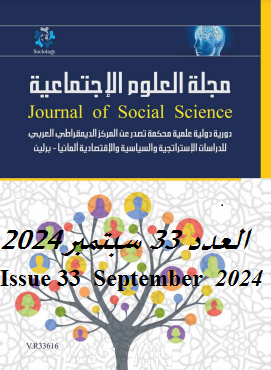The establishment of the White Flag Association and the Sudanese Revolution of 1924 AD (1920-1924 AD)
Keywords:
Sudan, Anglo-Egyptian rule, White Flag Association, Demands of the Sudanese nation, 1924 Sudanese RevolutionAbstract
The study dealt with the establishment of the White Banner Society and the 1924 Revolution that took place during the period of dual Anglo-Egyptian rule in Sudan. The study aims to know the establishment of the White Banner Society and the 1924 Revolution. The White Banner Society was a secret Sudanese society that aimed to spread national awareness in addition to its call for the unity of the Nile Valley. It was founded in Khartoum and its members represented the dissident part of the Sudanese Union Society. The White Banner Society was A symbol of awareness and the crystallization of the concepts of nationalism and patriotism. We also find that the events of the 1924 revolution were concentrated in the cities, and employees, workers and soldiers took the reins of its leadership, thanks to the changes that occurred in intellectual, social, economic and political life, and led to the growth of the nationalist spirit in uniting the Sudanese under its banner without regard to tribalism or region or religion. It also worked to stimulate the popular will and employ it to eliminate colonialism, cooperating with and being influenced by the Egyptian national movement. The events of the 1924 revolution represented an important turning point in the path of the national struggle movement in Sudan, but although it did not bring about Sudan gaining independence, it shook The colonial grip was violently shaken and it was the beginning of the path to freedom in Sudan. The method followed in this research is the historical and descriptive analytical method, relying on collecting information and facts from their original sources, then criticizing, comparing, analyzing, and employing them in the course of the research. The study concluded with results, the most important of which were: The White Banner Association was a natural development for the Sudanese Union Association, which led to the development of methods of national struggle in accordance with the requirements of the stage and the expansion of its organizational scope to attract the most modern institution in society at that time. This revolution of 1924 failed to expel the English and unify the Nile Valley. However, it was of great benefit to the history of the Sudanese struggle later. The study came out with a number of recommendations, the most important of which were: Providing the opportunity for national scholars to disseminate their ideas and scientific participation in shaping the history of Sudan by publishing their scientific dissertations and holding seminars, conducting historical and analytical studies of the symbols and early figures of the graduate movement and leaders of voluntary charitable work for their efforts and contributions in the field of social work
Downloads
Published
Issue
Section
License
Copyright (c) 2024 Journal of Social Sciences

This work is licensed under a Creative Commons Attribution-NonCommercial 4.0 International License.
This work is licensed under CC BY-NC 4.0






